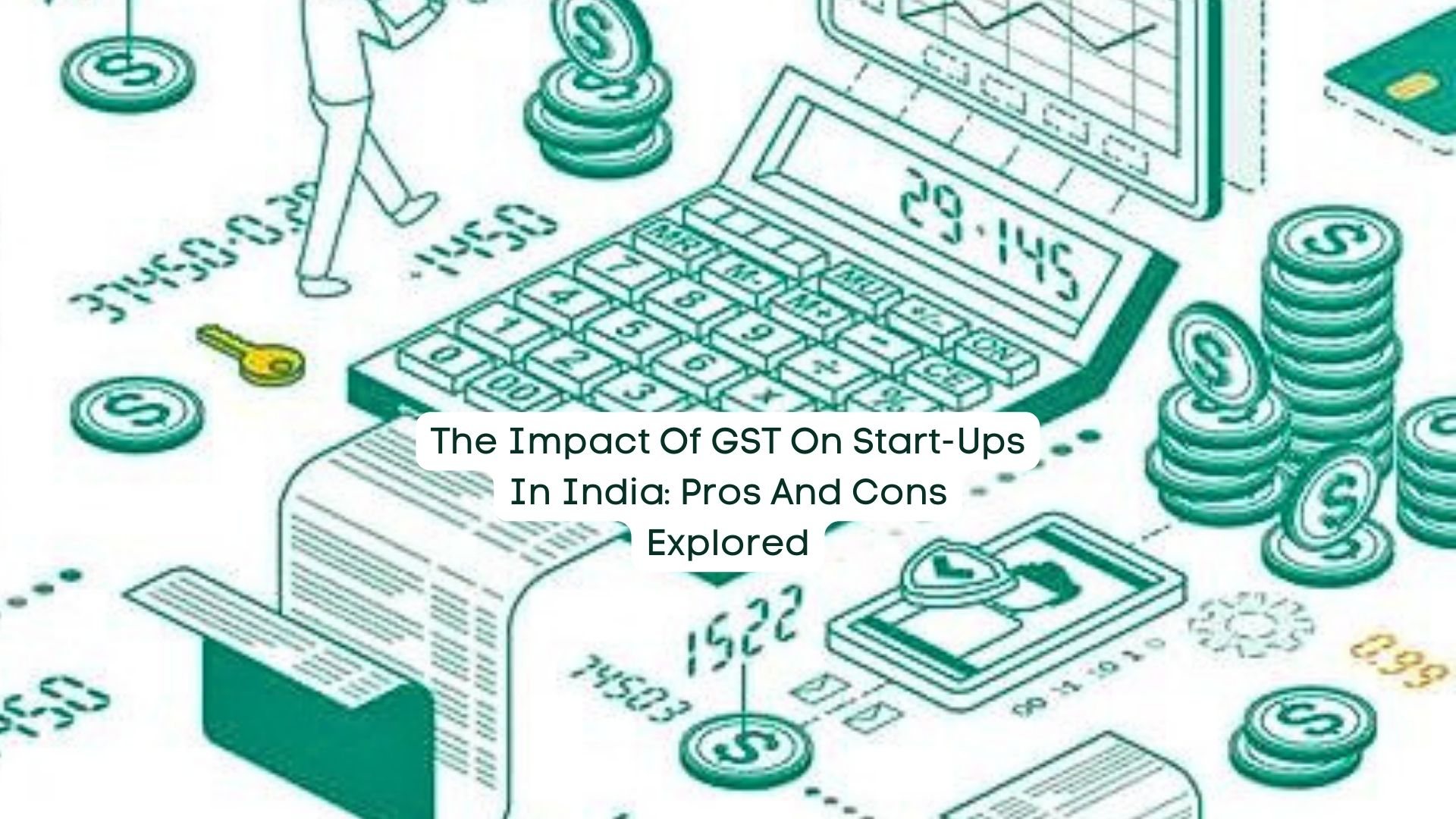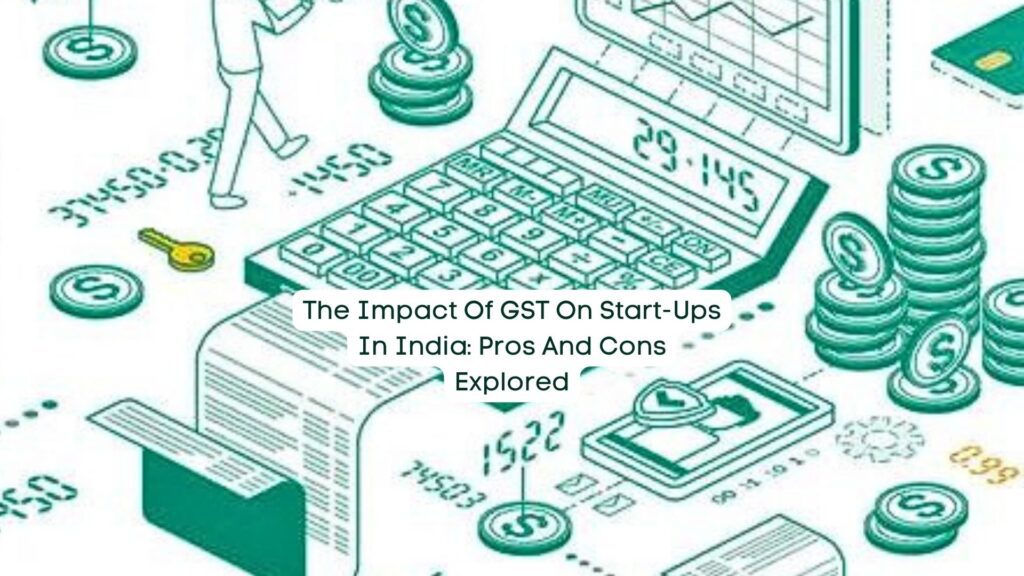
23 Feb The Impact of GST on Start-ups in India: Pros and Cons Explored

Introduction:
The Goods and Services Tax (GST) Act, introduced in 2016, represented a significant shift in India’s tax landscape. It aimed to streamline indirect taxation, affecting various sectors, including the burgeoning start-up ecosystem. This article explored the repercussions of GST on start-ups in India, examining both its benefits and drawbacks.
Understanding Start-ups:
In India, start-ups were defined by specific criteria outlined by the government. These criteria typically encompassed firms that had been operational for up to five years, with an annual turnover not exceeding INR 100 crores. Moreover, start-ups were characterized by their focus on innovation, technology-driven solutions, and intellectual property.
Facilitating Business Setup:
The advent of GST simplified the process of establishing new businesses. By consolidating various indirect taxes into a unified framework, GST reduced bureaucratic hurdles and paperwork for start-up entrepreneurs. Formerly complex tax compliance requirements were streamlined, allowing businesses to allocate more resources towards operational enhancements.
Elevated Registration Threshold:
Under the GST regime, the threshold for mandatory registration was raised to INR 20 lakhs, providing relief to many small and medium enterprises (SMEs) and start-ups. Additionally, the composition scheme introduced by GST offered a lower tax bracket for enterprises with turnovers ranging from 20 lakhs to one crore, thereby benefiting nascent start-ups.
Tax Credit Benefits:
Start-ups in the service sector could leverage GST to their advantage by offsetting VAT paid on essential purchases against their service tax liabilities. This mechanism not only reduced operational costs but also bolstered working capital, fostering business growth and sustainability.
Enhanced Logistics Efficiency:
GST’s streamlined tax procedures catalyzed improvements in logistics efficiency, particularly concerning inter-state trade. By eliminating disparate state taxes such as octroi, GST facilitated smoother movement of goods across state borders, thereby reducing operational complexities and costs for start-ups.
Implications for Manufacturers:
While GST conferred benefits to various sectors, manufacturing start-ups faced challenges due to altered tax structures. The reduction of turnover limits from 1.50 crores to 20 lakhs increased tax liabilities for manufacturing enterprises, potentially hampering their growth prospects.
Navigating GST Compliance:
In light of GST’s nuanced implications, it was imperative for start-ups to comprehend its tax ramifications thoroughly. By prioritizing tax compliance and seeking professional guidance, start-up owners could navigate the intricacies of GST implementation effectively, thereby optimizing their operational efficiency.
Empowering Online Ventures:
For technologically-driven start-ups with a significant online presence, GST presented opportunities for seamless business operations. E-commerce entities, in particular, stood to benefit from simplified tax procedures and exemption from state-specific VAT regulations, enabling uninterrupted commerce and expansion.
Considerations for Start-up Initiatives:
Before embarking on entrepreneurial endeavors, aspiring start-up founders had to consider various factors, including GST implications. Awareness of GST registration requirements, taxation on non-taxable goods, and adherence to online tax procedures were crucial for ensuring regulatory compliance and operational ease.
Conclusion:
In conclusion, GST ushered in a new era of taxation in India, with its impact on start-ups being multifaceted. While it streamlined processes and fostered efficiency, certain sectors, such as manufacturing, faced challenges. Nonetheless, with proactive measures and strategic planning, start-ups could leverage GST to their advantage, contributing to India’s dynamic entrepreneurial landscape.


No Comments